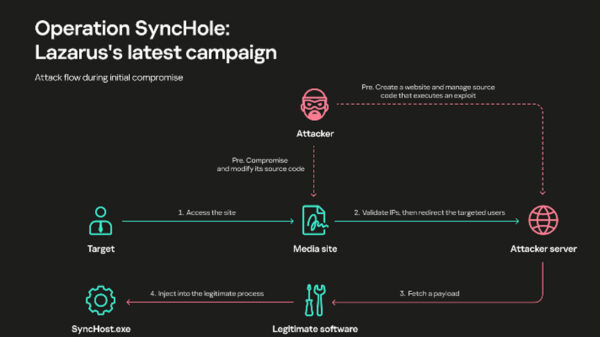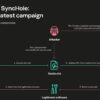Think your online date might not quite be who they claim to be? New Kaspersky research published today reveals that it’s very possible that ChatGPT, the new generative AI tool that’s taken the world by storm in recent months, might be involved. Over half (54%) of single men surveyed said that they would be open to using ChatGPT to deceive a potential partner on a dating app in a bid to make themselves appear funnier or smarter when looking for love.
The findings are part of Kaspersky’s “Date or DAIte?” research which surveyed single men and women in the United Kingdom to understand how artificial intelligence (AI) and specifically ChatGPT is impacting the dating world. The findings reveal that the use of ChatGPT as a helpful virtual ‘boost’ is already well underway, with 75% of all dating app users saying they would be exploring the use of ChatGPT to deliver the perfect chat up line.
The survey found that it’s not just quality but quantity which is being impacted by ChatGPT, with 51% of single women admitting that they would be using the AI tool to speak to multiple potential partners at the same time – presumably to significantly increase their chances of dating success. The findings did, however, raise concerns about the possibility of a new era of AI-based catfishing, with 57% of all respondents believing its use in an online dating setting to be dishonest.
Crystal Cansdale, dating expert at Inner Circle, a global dating app that puts quality first, comments, “There is a growing fatigue with dating apps right now as there is a lot of pressure on people to be ‘original’ and cut through the noise created by the continuous choice being offered to single people – unfortunately dating has become a numbers game. With AI tools such as ChatGPT now readily available, I’m not surprised that single people have said they would use it to help them stand out from the crowd, but the use of chatbots is deceiving and a real reason for concern. Authenticity is at the core of building relationships, and despite how ‘real’ a ChatGPT generated message can come across, it will only get you so far and ultimately it is not real.”
Perhaps surprisingly, despite the fact that most single adults would use ChatGPT to help with the language of love in real-time dating conversations, only 37% said that they would be open to using the tool to enhance their profiles.
David Emm, Principal Security Researcher Global Research and Analysis Team, Kaspersky, commented on the findings, “Using AI such as ChatGPT to create flirty chat-up lines might seem harmless and a fun way to strike up a new conversation with a prospective partner, but those using dating apps should be aware that not everyone will be using it in good faith. Some may be using it to deceive, and as we have seen with photo doctoring, people can very easily pretend to be something they are not and lure others into unpleasant scenarios.” He continues “If AI is about to make catfishing even easier, it’s important for individuals to remain vigilant when communicating with others online. Always be cautious and verify the authenticity of those you are speaking with to avoid falling victim to deceitful tactics.”
Cansdale concludes, “There’s also the matter of ChatGPT being used by scammers. People already need to be cautious of who they are talking to and ensure they are using safe apps that verify its users. These tools make it very easy for fraudsters to prey on the dating world, putting a lot of people at risk.”














































































































